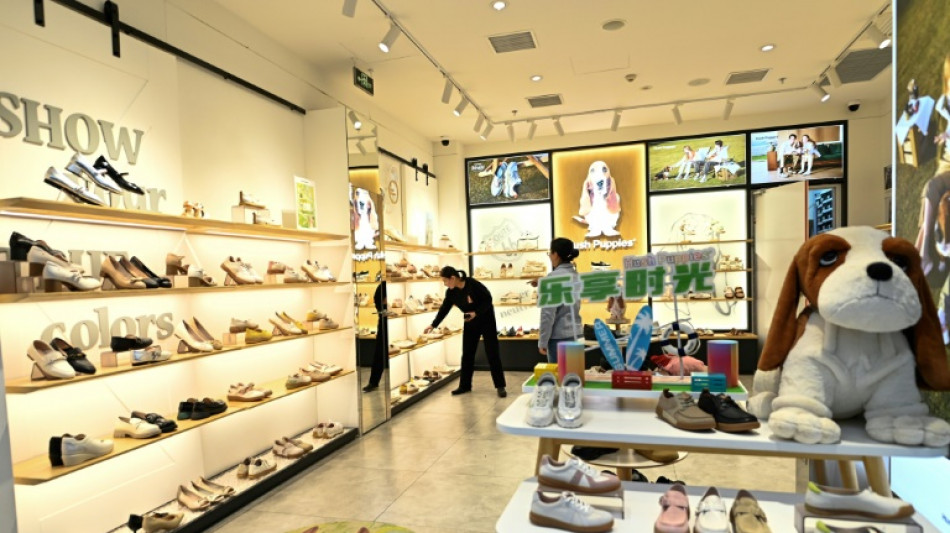
-
 SFWJ / Medcana Announces Strategic Expansion Into Australia With Acquisition of Cannabis Import and Distribution Licenses
SFWJ / Medcana Announces Strategic Expansion Into Australia With Acquisition of Cannabis Import and Distribution Licenses
-
Frankfurt's Goetze sidelined with leg injury

-
 Spurs players 'never lost belief', says Postecoglou
Spurs players 'never lost belief', says Postecoglou
-
Man Utd stun Lyon in nine-goal Europa League classic to reach semis

-
 Netflix earnings in first quarter of 2025 top forecasts
Netflix earnings in first quarter of 2025 top forecasts
-
Trump says US 'talking' to China on tariffs

-
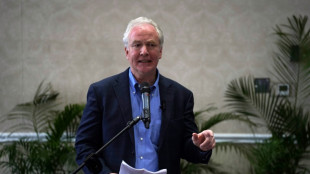 Salvadoran soldiers stop US senator near prison holding expelled migrant
Salvadoran soldiers stop US senator near prison holding expelled migrant
-
Solanke penalty sends Spurs to Europa League semis

-
 CAF crackdown after trouble in African club matches
CAF crackdown after trouble in African club matches
-
Trump talks up EU tariff deal as Italy's Meloni visits
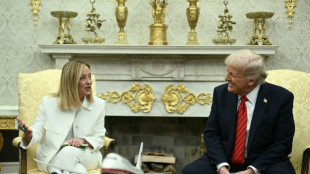
-
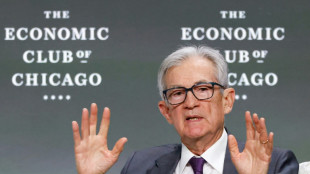 Trump insists he could fire independent Fed Chair Powell
Trump insists he could fire independent Fed Chair Powell
-
Google has illegal monopoly in ad tech, US judge rules
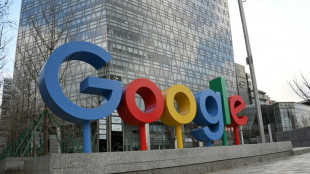
-
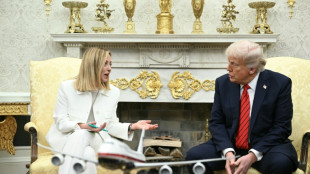 Trump softens on Zelensky, says mineral deal coming 'soon'
Trump softens on Zelensky, says mineral deal coming 'soon'
-
Jacks helps Mumbai beat Hyderabad in IPL

-
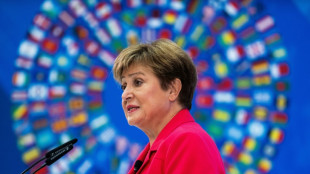 Countries must 'make the best' of new multipolar world: IMF chief
Countries must 'make the best' of new multipolar world: IMF chief
-
Heavy spring snow storm wreaks havoc in the Alps

-
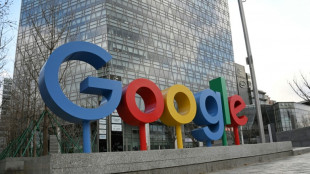 US judge rules against Google in online ad tech antitrust case
US judge rules against Google in online ad tech antitrust case
-
Andreeva knocked out by Alexandrova in Stuttgart last 16

-
 Iran challenges four countries in UN court over jet it downed in 2020
Iran challenges four countries in UN court over jet it downed in 2020
-
'Not at 50' - Alonso sets retirement limit

-
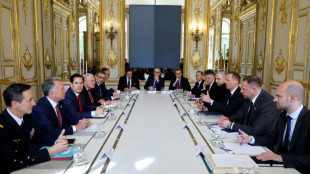 Macron praises US-European-Ukraine talks as 'important occasion for convergence'
Macron praises US-European-Ukraine talks as 'important occasion for convergence'
-
Verstappen dismisses Red Bull exit fears

-
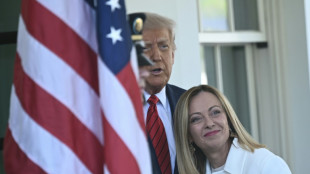 Italy's Meloni, Trump talk up EU trade deal hopes
Italy's Meloni, Trump talk up EU trade deal hopes
-
'Slow but steady' progress for Martin after Qatar MotoGP crash

-
 Pogacar-Van der Poel duel inspires Evenepoel comeback
Pogacar-Van der Poel duel inspires Evenepoel comeback
-
US judge rules Google monopolized online ad tech market
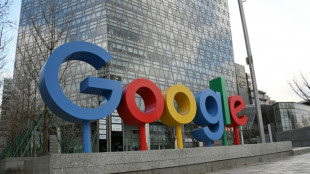
-
 Bearman back at 'special' debut-track Jeddah
Bearman back at 'special' debut-track Jeddah
-
Swiss watch exports to US soared ahead of Trump tariffs

-
 Alcaraz finds best to reach Barcelona Open quarters
Alcaraz finds best to reach Barcelona Open quarters
-
Where are all the aliens?: Fermi's Paradox explained

-
 France full-back Dulin to retire at end of season
France full-back Dulin to retire at end of season
-
World economy likely to avoid recession despite tariffs: IMF chief
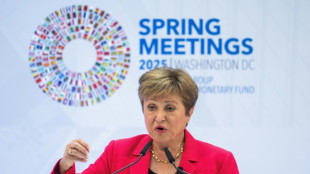
-
 57 killed in Sudan's Darfur as trapped civilians fear bloodbath
57 killed in Sudan's Darfur as trapped civilians fear bloodbath
-
Vietnam ups wind, solar targets as energy demand soars

-
 Pope says doing 'best he can' on jail visit before Easter
Pope says doing 'best he can' on jail visit before Easter
-
China's Xi meets Cambodian leader as part of regional diplomatic blitz
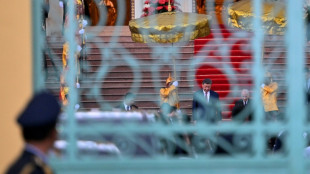
-
 Ukrainian tennis player seeks legal justice over 'moral abuse'
Ukrainian tennis player seeks legal justice over 'moral abuse'
-
Italy's Meloni seeks EU tariff deal from Trump
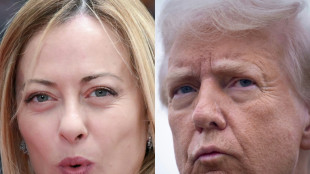
-
 France's feminist icon Pelicot to sue Paris Match for privacy invasion
France's feminist icon Pelicot to sue Paris Match for privacy invasion
-
World economy should avoid recession despite tariffs, IMF chief says
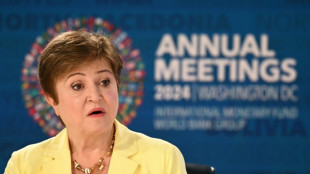
-
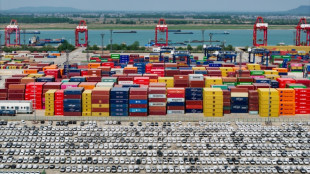 Stocks waver as ECB cuts rate, Trump slams Fed chief
Stocks waver as ECB cuts rate, Trump slams Fed chief
-
France, UK mull migrant swaps in bid to stem Channel crossings

-
 Nuno says Forest still in control of Champions League chase
Nuno says Forest still in control of Champions League chase
-
Malinin, Liu help US take early lead at skating's World Team Trophy

-
 Clashes in Sudan's besieged Darfur city kill 57
Clashes in Sudan's besieged Darfur city kill 57
-
Kyiv's Europe allies seek influence with US in Paris talks
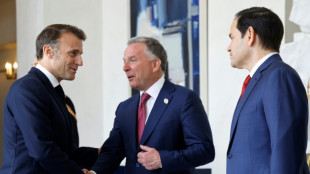
-
 Russia scraps Taliban's 'terror' label amid warming ties
Russia scraps Taliban's 'terror' label amid warming ties
-
Trump says Fed chief's 'termination cannot come fast enough'
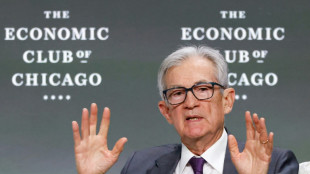
-
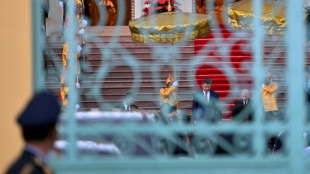 China's Xi, seeking to build regional ties, meets Cambodian leader
China's Xi, seeking to build regional ties, meets Cambodian leader
-
ECB cuts rates as Trump tariffs raise fears for eurozone growth
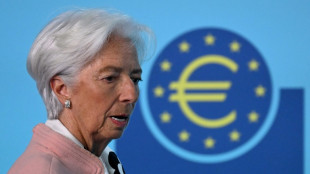

China seeks to 'tariff-proof' economy as trade war with US deepens
China is trying to tariff-proof its economy by boosting consumption and investing in key industries, but analysts say it remains critically vulnerable to the economic storm triggered by Donald Trump's 104 percent levies on its goods.
Beijing has vowed to "fight to the end" against Trump's aggressive trade policy, with number two leader Li Qiang saying authorities were "fully confident" in the resilience of the Chinese economy.
But even before the tariffs hit, weakness in the post-Covid domestic market, rising unemployment and a long-running property crisis had all dampened consumption.
"The Chinese economy has been significantly weakened since Trump's first term and can't really withstand the impact of sustained high tariffs," said Henry Gao, an expert on the Chinese economy and international trade law.
Overseas shipments had represented a rare bright spot last year, with the United States the top single country buyer of Chinese goods.
US figures put Chinese exports to the United States at around $440 billion in 2024, almost three times the $145 billion worth of imports.
Machinery and electronics -- as well as textiles, footwear, furniture and toys -- make up a majority of the goods sent, and a supply glut could squeeze already crowded domestic consumer markets.
Although China's domestic market is stronger now than in Trump's previous term, there would inevitably be pain ahead, said Tang Yao from Peking University's Guanghua School of Management.
"Certain products are specifically designed for American or European markets, so efforts to redirect them to domestic consumers will have only a limited effect," he said.
- 'Strategic opportunity' -
However, a weekend editorial in the Communist Party-backed People's Daily described the tariffs as a "strategic opportunity" for China to cement consumption as the main driver of economic growth.
We must "turn pressure into motivation", it read.
Beijing has been seeking to "recast structural external pressure as a catalyst for long-intended reforms", said Lizzi Lee from the Asia Society Policy Institute's Center for China Analysis.
Authorities are "projecting confidence", she said.
China's quick and coordinated response to tariffs reflect lessons learned from Trump's first term, she added.
For example, in addition to readying reciprocal tariffs on US goods set to come into effect Thursday, Beijing's commerce ministry the same day announced export controls on seven rare earth elements -- including ones used in magnetic imaging and consumer electronics.
Beijing's response to any further escalation may no longer be confined to tit-for-tat levies, as China is "refining its retaliatory approach", Lee said.
Since Trump's first term, China has diversified and fortified relationships with countries in Europe, Africa, Southeast Asia and Latin America, as well as South Korea and Japan.
Beijing could also expand government support for the private sector as entrepreneurs fall back into President Xi Jinping's good graces, added ANZ's Raymond Yeung.
China's leaders have been trying to promote domestic self-reliance in technology for some time, offering explicit support and reinforcing supply chains in key areas like AI and chips.
- 'No real protection' -
While this time round Beijing has more experience with Trump, it "doesn't mean the Chinese economy can easily shake off the effects of soaring tariffs", said Frederic Neumann, chief Asia economist at HSBC.
Authorities will be looking to quickly offset falling US demand for Chinese goods, he said.
That could look like trade-in schemes or more consumer subsidies that make it easier for Chinese shoppers to buy common household items, from water purifiers to electric vehicles.
"By creating demand and trade opportunities for China's partners in Asia and Europe, the country could help shore up what's left of the liberal global trading order," Neumann said.
But whether or not Beijing can do that is yet to be seen.
The government has "been very reluctant to introduce real consumption stimulus, which is why there's such low confidence in any so-called consumption-boosting measures", Gao said.
"I don't think China has any real protection against a trade war," he added.
Success also goes beyond words, and ultimately hinges on Beijing's ability to deliver the long-awaited consumption boost, HSBC's Neumann warned.
"This is China's moment to seize economic leadership of the world," he said.
"But that leadership will only come about if domestic demand rebounds and fills the void left by an absent US."
F.Pedersen--AMWN